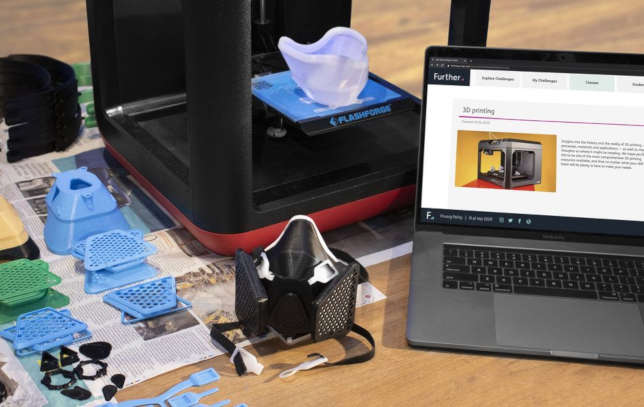Maker Mask Teams with pi-top to Share Lessons on 3D Printing Respirator Masks
- By Dian Schaffhauser
- 05/13/20

A
new nonprofit maker organization is working with a company that
creates computer kits to encourage people to make respirators for
their communities. Maker
Mask
has come up with lessons on how to make what it calls National
Institutes of Health (NIH)-approved, open-source 3D printable masks.
And pi-top
has begun rolling out videos and lesson plans that show how to do it.
Printing
one of the masks takes about four hours, according to Maker Mask, and
offers the equivalent lifetime use of 300 N95 masks.
Maker
Mask, funded by the RPrime
Foundation,
was recently launched to provide guidance to people who want to do
something useful during the COVID-19 pandemic: 3D print
respirator-quality masks. pi-top sells kits with parts to enable
students to build a programmable computing device. Educators can use
the kits to teach STEAM skills. It launched in 2014 when its two
founders created the first 3D-printed laptop computer.
"The
Maker Mask Initiative is a grassroots response to the COVID-19 crisis
and it's an all hands-on-deck effort that can also empower motivated
kids to be part of the solution," said Jonathan Roberts, leader
of the Maker Mask Initiative and co-founder of RPrime, in a
statement. "It's wonderful that pi-top is taking this
opportunity to teach kids valuable skills and allowing them to make a
real contribution to supporting the front-line workers, who are the
true heroes of this COVID-19 crisis."
Instructional
videos will be published on
the pi-top website.
Maker Mask itself also offers videos
explaining how to create the masks and provides details on the
various elements
of the mask
on
its website.
About the Author
Dian Schaffhauser is a former senior contributing editor for 1105 Media's education publications THE Journal, Campus Technology and Spaces4Learning.